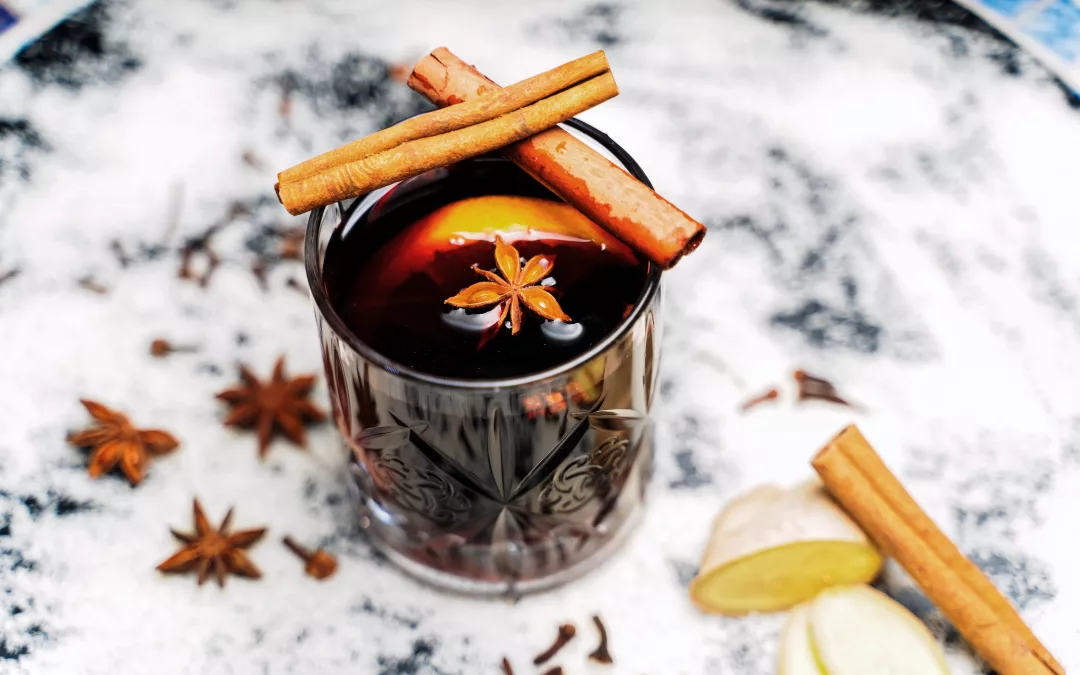Written by Kimberley Gittens on behalf of Rachel McBryan, RD
As dietitians, we often focus a lot on the food found on our plates, or the snacks we eat throughout the day, and beverages, like alcohol, tend to get left behind in discussions.
Beverages are a source of nutrients in our diets. So, it comes as no surprise that beverages also play a role in the management of many chronic conditions, including diabetes, heart failure, kidney disease and even IBS.
You may have noticed that certain drinks, such as some types of milk, can trigger your IBS symptoms and should be avoided, or at least limited in your regular diet. Some types of milk, coffee and breakfast juices are common triggers for people with IBS.
Although there is currently no research detailing the role of alcohol in triggering IBS symptoms, an observational study reports approximately 1 in 3 people with IBS report experiencing symptoms from consuming alcohol.
Alcohol is a gut irritant, and can impact how your gut functions including, how quickly food moves through the gut, and how well nutrients are absorbed into your body. Additionally, some types of alcohol are high in FODMAPs, which may contribute to GI symptoms.
Tips for Responsible Drinking with IBS
Although I’m not encouraging drinking, I do want to acknowledge it is a common feature in many festivities and parties, particularly this time of the year. With this in mind, it’s better to be equipped with the knowledge and reduce your IBS symptoms, than taking a wild guess at what might be a safe choice.
Some tips that can help with managing your IBS symptoms if, and when, drinking alcohol include:
1. Know Your Alcohol Choices
Some types of alcohol are higher in FODMAPs than others, and may be more likely to trigger your IBS symptoms. According to research from Monash University, some low FODMAP drinks include,
-
- Beer
- Wine (red or white)
- Vodka
- Gin
- Whiskey
- Beer
Similar to food, everyone’s experience with alcohol and IBS is different. Types of alcohol that may not trigger IBS symptoms in one person, may have negative effects in someone else.
2. Limiting Your Alcohol Intake
Managing your IBS isn’t just about what foods, or drinks you choose, but also about how much you include in your diet. Although a food or beverage may be low FODMAP, consuming large amounts can trigger your symptoms. Being aware of the amount of alcohol you consume can be a cornerstone of managing your GI symptoms.
3. Get Fancy with Mocktails
Mocktails are a great way to dress up your drink, and get into a festive mood without alcohol. Don’t forget to have a close look at some of the mocktail ingredients, as some recipes can be high in FODMAPs! You may want to avoid recipes that include high fructose corn syrup as an ingredient.
4. Avoid Drinking If You’re Experiencing Symptoms
If you are experiencing GI symptoms before consuming alcohol, it might be a good idea to avoid drinking, as it may lead to worsening of your symptoms.
Healthy Alcohol Intake
In addition to managing your IBS symptoms, it’s also important to note the healthy drinking guidelines from Health Canada.
Health Canada recommends women limit their alcohol to no more than 2 standard drinks per day, or 10 standard drinks per week, while men limit their intake to no more than 3 standard drinks per day and 15 standard drinks per week.
Some examples of a standard drink include,
-
- 12 oz of beer (5% alcohol)
- 12 oz of cider (5% alcohol)
- 5 oz of wine (12% alcohol)
You can find more information on health drinking guidelines from Health Canada’s website.
The Takeaway
Many people with IBS can continue to consume alcohol. However it’s important to keep in mind that some types of alcohol can be high in FODMAPs, and are more likely to trigger your GI symptoms. Choosing alcohol that is lower in FODMAPs, limiting your alcohol intake, or indulging in mocktails are some ways that you can keep your IBS symptoms at bay while still enjoying get together and festivities.
Get Help Identifying Your IBS-Triggers
Identifying your IBS triggers allows you to eliminate them from your diet, and prevent flares up and post-meal discomfort. Book a FREE discovery call today to learn more about working with a Registered Dietitian to manage your IBS!
References
Canadian Digestive Health Foundation. (n.d.). Alcohol and IBS. Retrieved December 16, 2022, from https://cdhf.ca/en/alcohol-and-ibs/
Chey, W. D., Nojkov, B., Rubenstein, J. H., Dobhan, R. R., Greenson, J. K., & Cash, B. D. (2010). The yield of colonoscopy in patients with non-constipated irritable bowel syndrome: results from a prospective, controlled US trial. The American Journal of Gastroenterology, 105(4), 859–865. https://doi.org/10.1038/AJG.2010.55
Spiegel, B. M. R., Farid, M., Esrailian, E., Talley, J., & Chang, L. (2010). Is irritable bowel syndrome a diagnosis of exclusion?: a survey of primary care providers, gastroenterologists, and IBS experts. The American Journal of Gastroenterology, 105(4), 848–858. https://doi.org/10.1038/AJG.2010.47
Kimberley is a Registered Dietitian, licensed in Ontario. She helps clients across Ontario control their blood sugars and reduce their risk of chronic conditions.

